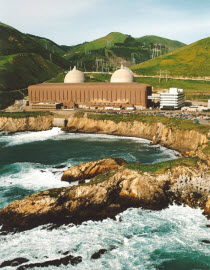


India’s Parliament approved new legislation Thursday that enables opening the tightly controlled civil nuclear power sector to p...
The provisional cost estimate for EDF’s program to build six new-generation EPR2 nuclear reactors at the Penly, Gravelines, and ...
Urenco USA has completed a successful year of advancing the USA’s nuclear fuel supply by achieving two new milestones in Decembe...
India's Parliament Approves Bill to Open Civil Nuclear Power Sector to Private Firmshttps://t.co/ntf5D5yuP2
— TradeTech (@U3O8TradeTech) December 18, 2025
Uranium 101 - Uranium as Nuclear Fuel

Uranium in its naturally occurring form consists primarily of two “isotopes” with the same chemical characteristics, but different atomic weights due to the differing number of neutrons in their nuclei. Both isotopes have 92 protons in their nuclei (and, thus, the same chemical characteristics), but the lighter isotope (atomic weight of 235) has 143 neutrons and the heavier isotope has 146 neutrons. The lighter isotope, U-235, comprises only 0.7% of natural uranium, but it is the only isotope that can actually undergo fission and, thus, produce energy. The other isotope, U-238, comprises the remaining 99.3% of natural uranium. In order to be useful as fuel in the most prevalent nuclear power technologies, the percentage of U-235 must be increased to the level of 2-5% U-235, a process called “enrichment.” Enrichment is a technically difficult process, the essence of which is highly secret because it is the same process used to produce some nuclear weapons material. (Nuclear weapons can be made from uranium of approximately 90% U-235.)